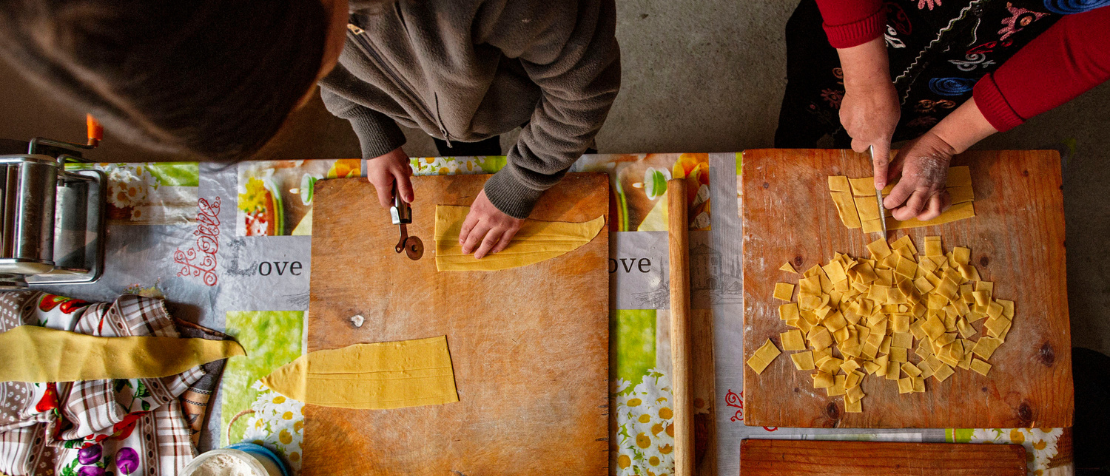To safeguard the food supply from hazards, proactivity is key, say food industry experts in Kyrgyzstan

©FAO/Mirbek Kadraliev
Did you know that one in ten people worldwide falls ill from contaminated food each year, and that unsafe food can cause more than 200 diseases, ranging from diarrhea to cancers? Food safety affects all countries.
That is why World Food Safety Day, celebrated annually on 7 June, draws attention to the issue and encourages action to prevent, detect and manage foodborne risks.
The Food and Agriculture Organization of the United Nations (FAO) and the World Health Organization (WHO) join forces each year to raise awareness about these issues and inspire action across all sectors of the food chain, from farm to fork. This year’s theme, “Food safety: prepare for the unexpected”, explores the ways in which we all can prepare for unexpected food safety incidents, from minor events to major international crises.
Food safety is everyone’s business
To raise awareness on proper food safety and management, a workshop was held in Bishkek, the capital of Kyrgyzstan, on World Food Safety Day to help consumers, producers and officials focus on an issue often taken for granted.
“7 June is more than just a date on the calendar,” said Kuvatbek Bapaev, Acting FAO Deputy Representative in Kyrgyzstan and an FAO technical adviser, during his welcoming speech. “World Food Safety Day encourages consumers and vendors to remain informed and promote food safety. Today’s workshop is a good platform for all actors along the food supply chain to ask themselves if they are prepared to address unexpected threats to food safety in an increasingly interconnected food supply.”
The event, held at the Kyrgyz Economic University named after Musa Ryskulbekov, featured leaders in the movement towards greater food safety, including panelists from the food industry, trade and academia. Attendees focused on current food safety challenges and solutions and on following food safety guidelines.
Speakers at the event presented the Hazard Analysis and Critical Control Points (HACCP) system and its principles and discussed risk identification and monitoring to underscore the importance of collective efforts in maintaining the safety of food supply chain, from farm to table.
“The good news is that we can prevent food poisoning by using safety measures,” said Almaz Kadyraliev, Rector of the Kyrgyz Economic University. “These measures include things like putting labels on food, being clean when handling it, and using additives and preservatives. However, because many people are involved in getting food to us, keeping it safe is not always easy.”
Progress consists of challenges
Despite advancements in technology and regulation, numerous challenges persist in ensuring food safety around the world, including in Kyrgyzstan.
The workshop, which aims to support the development of the food processing sector in line with international recommendations and market requirements, was organized as part of the FAO project “Enhancing capacities for food safety management in the fruit and vegetable industry of the Kyrgyz Republic”, funded by the Standard Trade Development Facility. The facility is a global partnership that facilitates safe trade and contributes to sustainable economic growth, poverty reduction and food security.
Vegetables and fruits are an important component of our diet and a wonderful source of fibre, vitamins and minerals. However, they may be contaminated by harmful chemicals – such as agrochemicals, natural toxins, heavy metals or micro-organisms – that can cause various diseases. That is why adherence to norms and good agricultural practices is key to preventing foodborne diseases, enhancing food security and supporting the economy.
“Every meal, every snack, every time dishes are prepared, whenever foods are grown, produced and transported – all of these are moments when food safety must be prioritized,” said Bermet Jurupova, an FAO food safety expert. “When more people know about food safety, we can take better actions to keep our food safe.”
Food industry representatives at the meeting shared their experiences in implementing food safety procedures.
“It is essential and critical to ensure that food stays safe at every stage,” said Shamil Boronchiev, who heads the Innovation Project Management Department at the state-owned company Kyrgyzindustry. “This involves improving standards and regulations, enhancing education and communication, and boosting surveillance and laboratory capabilities.”
Ensuring food safety is a shared responsibility from farmers to families and from processors to plates. By raising awareness, sharing knowledge and following food safety practices, we all can contribute to healthier lives and a healthier planet.

